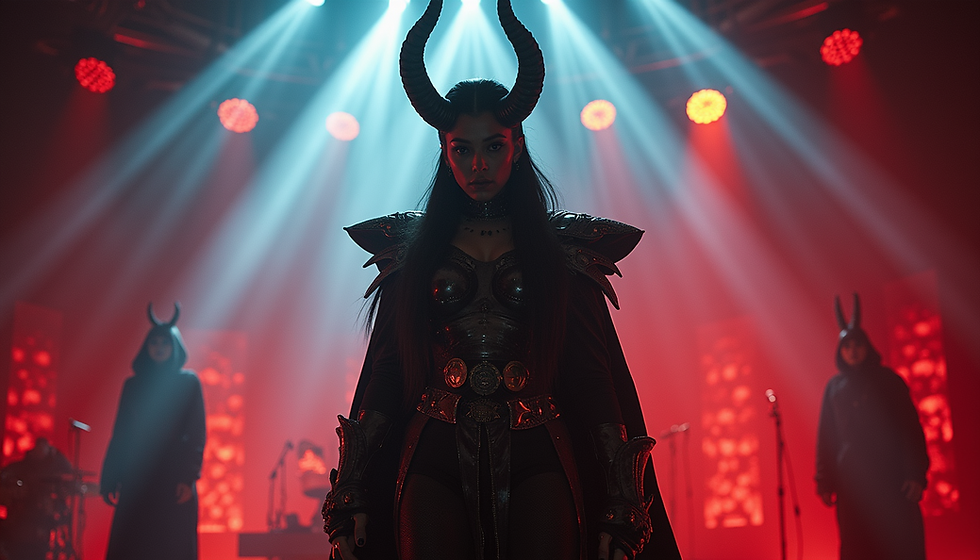The Evolution of Captain America Through the Ages
- Joseph Fanning
- Oct 5, 2025
- 4 min read
Captain America has stood as a beacon of heroism and patriotism since his debut in 1941. Created by Joe Simon and Jack Kirby during a time of global conflict, this iconic character has not only reflected the shifting tides of society but has also made a lasting impact on popular culture. In this blog post, we will delve into Captain America's evolution, examining his origins, the influence of historical events, and how he has adapted to contemporary values.
The Origins of Captain America
Captain America first appeared in "Captain America Comics #1," released by Timely Comics, which evolved into what we now know as Marvel Comics. He arrived during World War II, a period when America faced the harsh realities of war and the battle against fascism. Steve Rogers, a frail young man, undergoes an extraordinary transformation into the super-soldier Captain America through an experimental serum. This serum grants him superior strength and agility, embodying the ideals of courage, sacrifice, and justice.
In his original comic arcs, Captain America often fought against Nazi forces and other threats to freedom. His iconic shield—a symbol of protection and resilience—was not just a weapon but a representation of hope. Early stories resonated deeply with readers, offering inspiration during tumultuous times. For instance, in his inaugural comic, Captain America single-handedly takes on a Nazi agent, emphasizing his role as a defender of American values.

The Post-War Era and the Cold War
After World War II, Captain America's popularity began to decline, leading to his temporary hiatus in the late 1940s. However, with the superhero revival of the 1960s, he was reintroduced in "The Avengers" #4. This revival coincided with the Cold War, a time marked by heightened political tensions and ideological battles.
In this new era, Captain America was portrayed as a man out of time, grappling with a world drastically different from the one he fought for. The character began exploring themes of disillusionment and the moral complexities of heroism. For instance, in "Tales of Suspense" #39, Captain America confronts issues of government distrust and the ethical implications of power, showcasing a more nuanced and relatable hero.
The Bronze Age and Social Commentary
The 1970s and 1980s ushered in the Bronze Age of comics, during which Captain America became a powerful voice for social change. Writers like Steve Englehart and Ed Brubaker used his storylines to address urgent social issues like civil rights, the Vietnam War, and the Watergate scandal. Captain America evolved from a mere symbol of patriotism into a critic of injustice.
A standout storyline from this era is "The Secret Empire," where Captain America battles against a corrupt government organization. This narrative challenged the idea of blind patriotism, emphasizing accountability and morality. Notably, the storyline sparked conversations among readers, with an estimated 80% of fans appreciating the character's shift towards a more thoughtful engagement with social issues.

The Modern Age and Cinematic Success
The late 1990s and early 2000s marked the beginning of the Modern Age of comics, characterized by darker narratives and complex character arcs. Captain America's development continued, with writers like Mark Millar and Ed Brubaker pushing boundaries. The introduction of the "Ultimate" universe reimagined Captain America for a contemporary audience.
Yet, it was the Marvel Cinematic Universe (MCU) that truly elevated Captain America to mainstream fame. "Captain America: The First Avenger," released in 2011, introduced Chris Evans in the lead role and brought the character to a new generation. The films delved into themes of sacrifice, camaraderie, and the moral dilemmas faced by heroes. In "Captain America: The Winter Soldier," he confronts the balance between government power and personal freedom, making him a more relatable hero.
Captain America Today
In recent years, Captain America has continued to evolve to reflect today's society. His stories have tackled pressing issues such as nationalism, identity, and the complexities inherent in modern heroism. The introduction of new characters, like Sam Wilson stepping into the Captain America role, has broadened the narrative and made it more inclusive.
Modern comic series and television adaptations explore Captain America's legacy, prompting readers and viewers to consider the true meaning of heroism in our world. This character remains a symbol of hope and serves to inspire new generations to fight for justice and equality.
Final Thoughts
The journey of Captain America illustrates his enduring relevance and adaptability. From his original role as a wartime hero to his current complexities, he has mirrored the values and struggles of each era. As society continues to evolve, so too will Captain America, reminding us that real heroism lies not just in physical strength but in the courage to fight for what is right.
Looking ahead, Captain America will undoubtedly keep inspiring and challenging us, serving as a symbol of the ideals we strive to uphold. Whether through comics, films, or other forms of media, Captain America's legacy will surely remain a powerful presence in popular culture for years to come.
Joe is a Captain America fan.










Comments